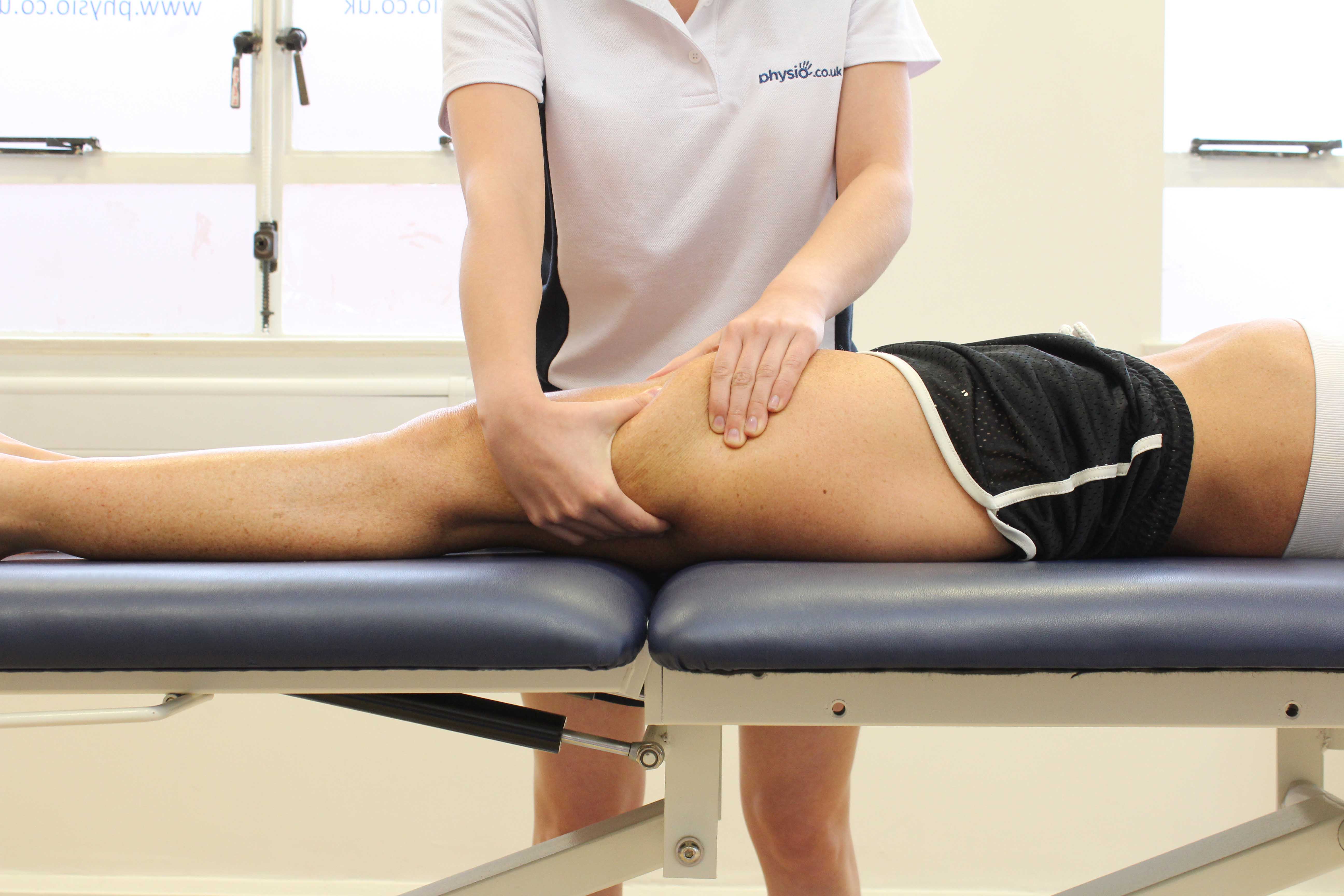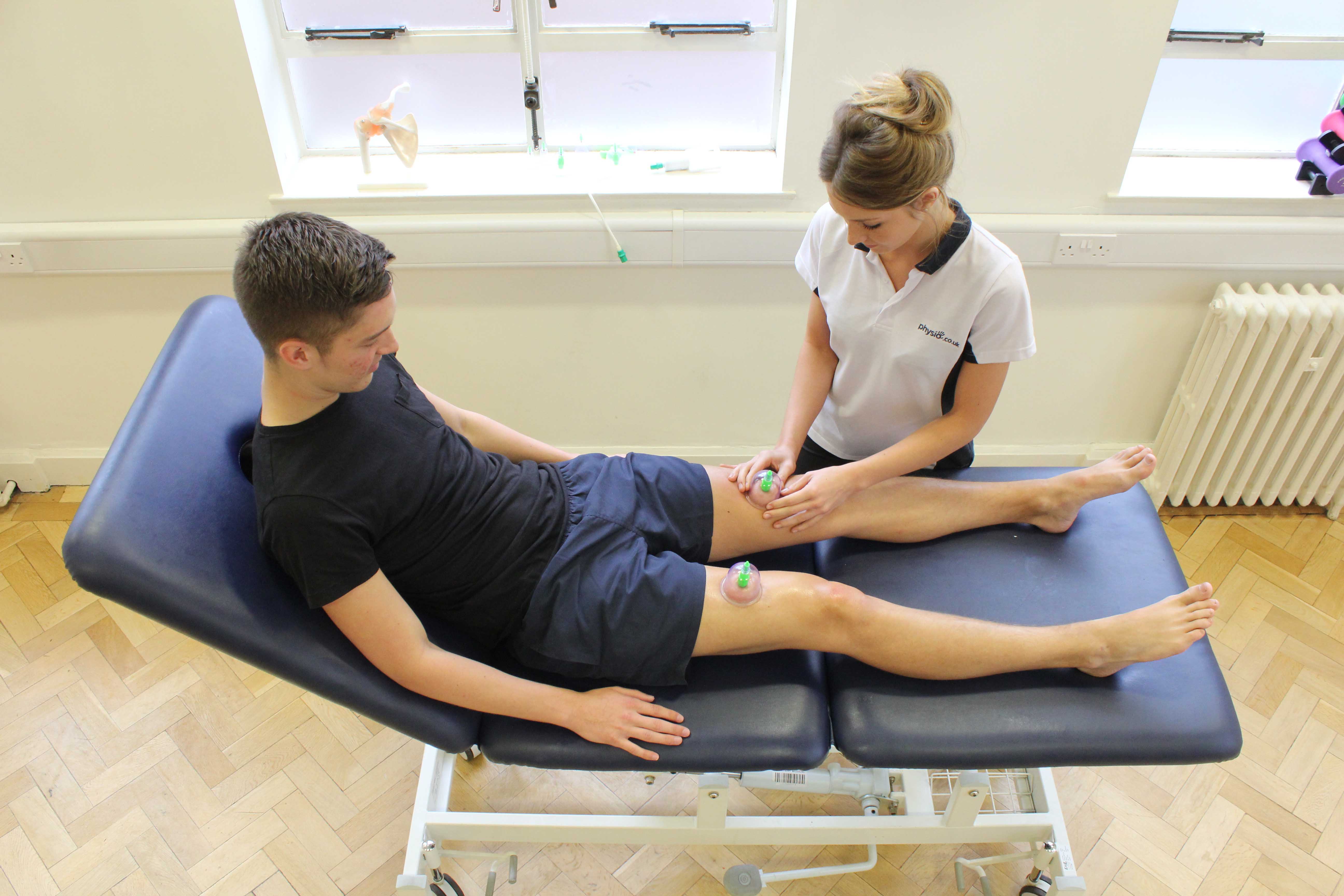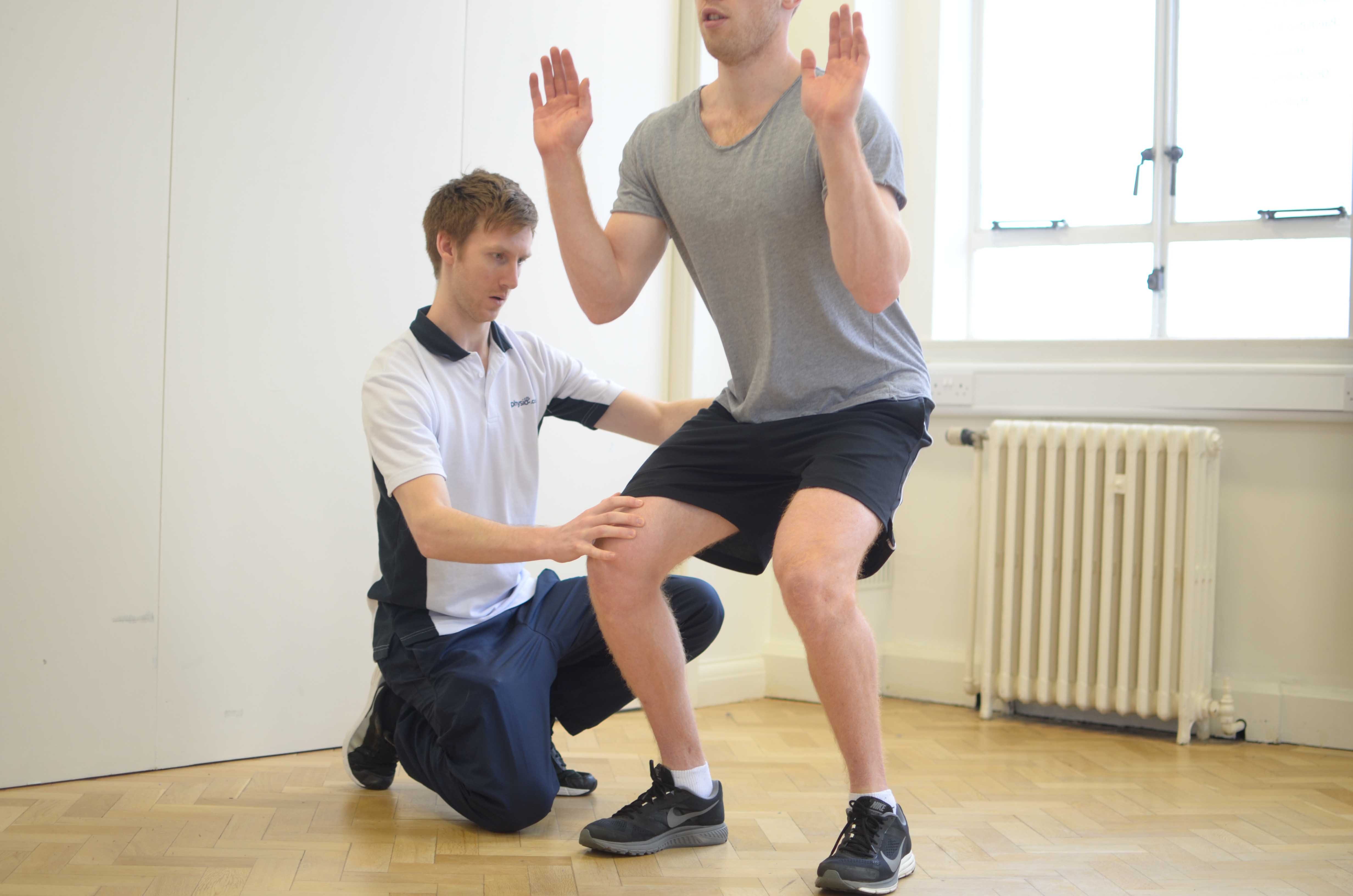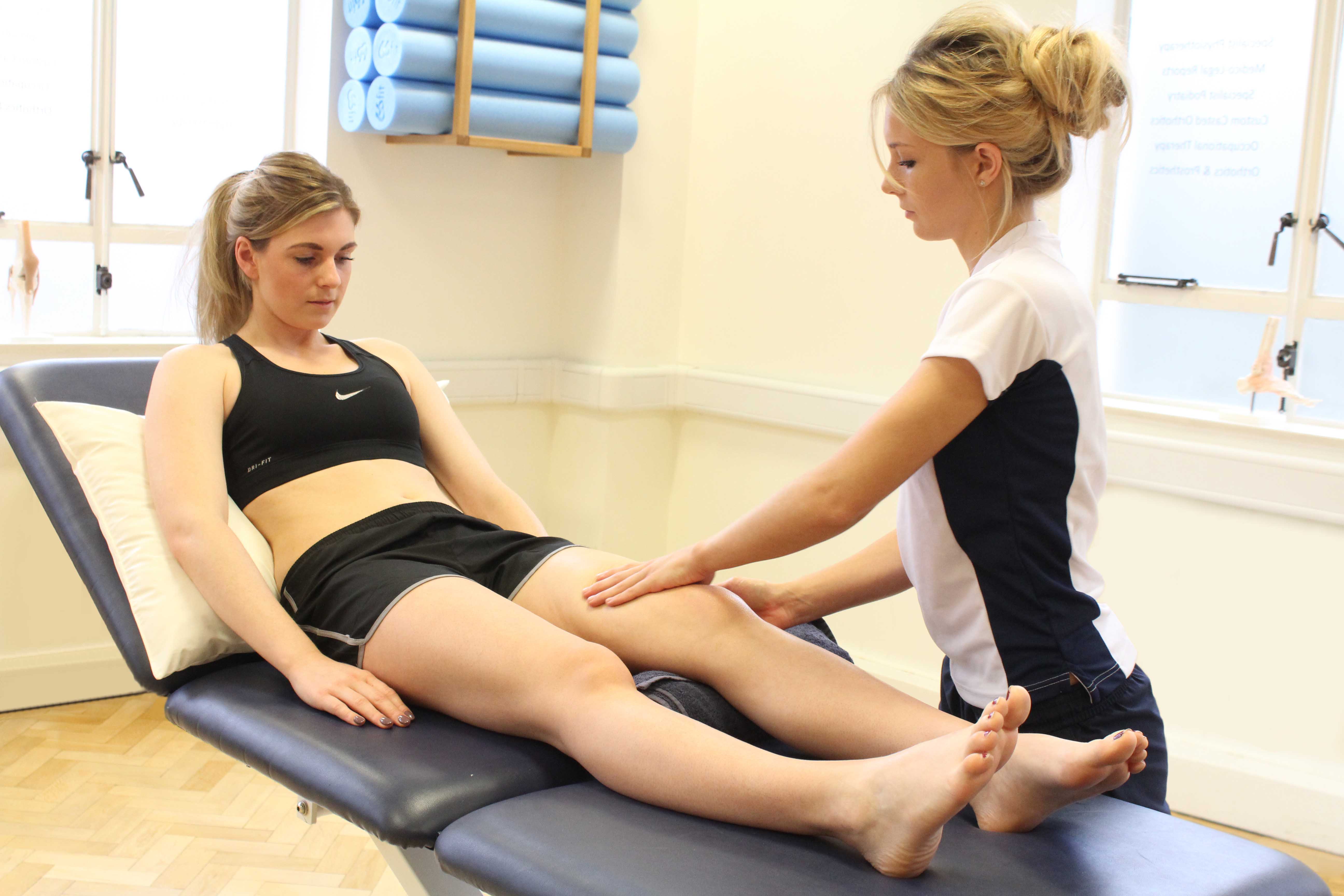What is a ruptured quadricep?
Four muscles make up the large quadricep group located on the front of the thigh. These include rectus femoris, vastus lateralis, vastus medialis and vastus intermedialis. A ruptured quadricep is a complete tear in any of these four muscles. Physiotherapy is a successful treatment for a ruptured quadricep.
 Above: Rolling soft tissue massage of the quadricep muscles by an experienced therapist
Above: Rolling soft tissue massage of the quadricep muscles by an experienced therapistHow does a ruptured quadricep happen?
A ruptured quadricep is most common in sporting injuries which rely on powerful contractions of this muscle group. Jumping, sprinting and kicking movements put a lot of strain on all four muscles and can therefore lead to a ruptured quadricep.
What are the symptoms of a ruptured quadricep?
A ‘tearing’ sensation and intense pain are the most common symptoms experienced with a ruptured quadricep. Over the first 24-48 hours you may also notice extensive bruising where the muscle fibres have been damaged. Other symptoms include:
 Above: Cupping massage technique applied to the quadricep muscles by specialist therapist
Above: Cupping massage technique applied to the quadricep muscles by specialist therapistWhat should I do if I have a ruptured quadricep?
It is important to apply ice to the area in the first 24-48 hours to minimise the swelling and pain. It is also useful to elevate your injured leg to further reduce any swelling. You should have an initial assessment with a physiotherapist as soon as possible as this will help you return to your sport or normal activities of daily living as soon as possible.
What shouldn’t I do if I have a ruptured quadricep?
You should not carry out any activities that will increase the local blood flow to the injured quadricep within the first 48 hours. This will delay the healing process and can cause increased pain. Such activities include massage, hot showers, heat rub and excess alcohol.
 Above: Progressive quadricep strengthening exercises supervised by specialist MSK therapist
Above: Progressive quadricep strengthening exercises supervised by specialist MSK therapistPhysiotherapy treatment for a ruptured quadricep.
There are a number of physiotherapy options to treat a ruptured quadricep. Your treatment will be tailored to your injury and goals and your physiotherapist will work with you to create the most appropriate treatment programme. Physiotherapy may include:
Could there be any long-term effects from a ruptured quadricep?
The majority of ruptured quadriceps will only require conservative (non-surgical) treatment. However, if the ruptured quadricep is too extensive, surgery may have to be considered. It is important that you begin a physiotherapy programme soon after your operation to maximise your recovery.
 Above: Soft tissue massage of the quadricep muscles by a specialist MSK therapist
Above: Soft tissue massage of the quadricep muscles by a specialist MSK therapistTo arrange an assessment with a specialist physiotherapist call Physio.co.uk on 0330 088 7800 or book online.

 0330 088 7800
0330 088 7800


































